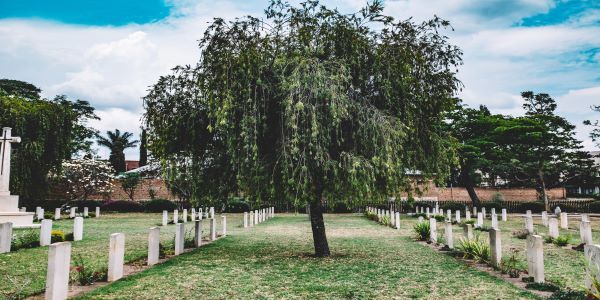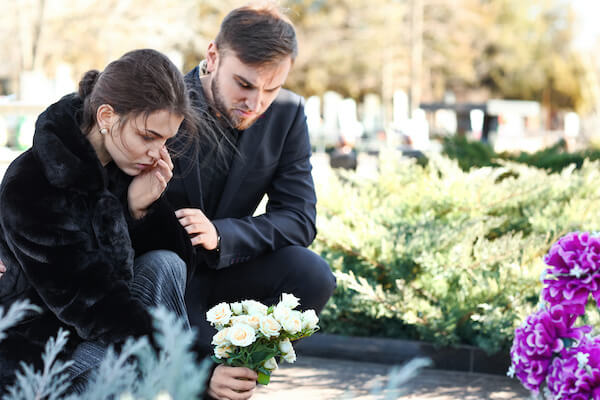
How to Arrange a Funeral During Coronavirus
At this difficult time, coronavirus is forcing tough restrictions on those who have recently lost loved ones and the way funerals can be conducted. While the pandemic lasts, funerals will have to follow strict new guidelines laid down by Public Health England. Here we have answered all your potential questions about how COVID-19 will affect how you arrange a funeral for your loved one.
Are Funerals Banned?
The government recognises that witnessing the funeral of a loved one plays an important role in helping bereaved families move through the grieving process and not being able to attend can have an impact on long-term health and well-being. Unlike other life events, witnessing a funeral can’t be deferred and there is no opportunity to repeat it again in the future. Therefore, being able to be there in person, even if as a much smaller group, remains important for families. So, for now, funerals can still go ahead.
Can I Still Arrange a Funeral?
Currently, guidelines say that funerals should continue as normally as possible. However, families are being asked to consider restricting attendance to 'close family members' only to reduce the risk of spreading coronavirus. You can also no longer hold a gathering after the ceremony for the same reasons.
How Do I Arrange a Funeral if I am Self-Isolating?
Funerals should be arranged over the phone or email wherever possible. Do not arrange a funeral in person if anyone involved has symptoms or should be self-isolating, in accordance with government advice. It is vital that we do all we can to reduce the spread of the virus and that funeral service employees (who are key workers) can remain healthy and able to continue supporting bereaved families.

How Long Will the Delay be Between Death and the Funeral?
The Coronavirus Act became law on 25th March, giving temporary powers to deal with the pandemic. It means funeral directors can now register deaths, saving the family from going to the Registrar’s office. This should make the process quicker, easier for bereaved people and more efficient. The time between the death and a funeral will also be dependent on the cause of death and whether the death is referred to the coroner.
How Many People Can Attend a Funeral?
Government guidance has not limited funerals to a specific number. However, they have said that funeral services should only be attended by members of the immediate family who are not in any of the high-risk categories, are not key workers and are not self-isolating. If the deceased has neither household or family members in attendance, then it is possible for a modest number of friends to attend. ‘Direct’ cremation and burials are also likely to become more common where there are no attendees at all.
This can be hard for those in large families. There are a number of options such as having an online gathering at the time of the funeral through Google Hangout or Zoom for all those unable to attend. You can consider the possibility of live-streaming or recording the service. Furthermore, you can also hold a memorial service or celebration of life once social distancing rules are relaxed.

What Do I Need to Think About When Arranging a Funeral?
When arranging a funeral during the current pandemic, it's worth to keep the following in mind:
- Who you want to attend, being mindful of those in high-risk groups
- Arranging service sheets as service books are unlikely to be available
- Recording the eulogy so those not in attendance can listen or watch at another time
- Services may need to be shorter so the venue can be cleaned between services
- Organising a celebration of life or memorial for a later date, when it's safe to do so
- Social distancing requirements.
What Changes on the Day?
In order to stop the spread of coronavirus, there are certain changes that you will likely experience during the funeral such as the following:
- Waiting outside in the car until you're asked to enter the building by the celebrant, chapel attendant or funeral director.
- Sticking to any assigned seating plans and keep your distance from other mourners.
- You may be advised not to touch the coffin as you leave the service.
- Refraining from making physical contact with anyone outside of your household.
- The gardens may be closed.
- Some directors have already withdrawn limousines used for mourners
- You may not be able to view the body in the chapel or carry the coffin.
Losing a loved one is a sad and distressing experience and funerals are important and personal. Unfortunately, during this international crisis, daily life is significantly changed including funerals. These changes may be incredibly difficult but they are necessary in order to help stop the risk of coronavirus spreading.
For more information on arranging a funeral during coronavirus, please check government guidelines.